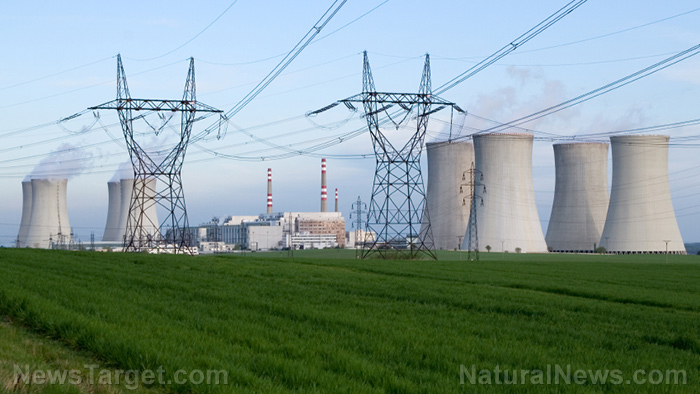EPA proposes emissions controls on existing power plants
04/26/2023 / By Ethan Huff

For the first time since its inception, the Environmental Protection Agency (EPA) is pushing for greenhouse gas emission limits to be imposed on existing power plants.
Even amid the ongoing energy crisis and the push to convert everything to electric, the federal government wants to further limit the amount of energy accessible to the public by capping emissions at power stations.
Ignoring last June’s Supreme Court decision in West Virginia v. EPA, the Biden regime’s EPA is planning yet another assault on the United States electric grid. In essence, all power plants would be required to capture and store carbon dioxide (CO2) in order to maintain compliance with the newly proposed rules.
Just 20 of the nation’s 3,400 coal- and gas-fired power plants use the technology, according to three people who were briefed on the rule. This means that the other 3,380 power plants without the technology will need to implement it on their smokestacks.
“If implemented, the proposed regulation would be the first time the federal government has restricted carbon dioxide emissions from existing power plants, which generate about 25 percent of the planet-warming pollution produced by the United States,” reported Watts Up with That. “It would also apply to future plants.”
(Related: In 2006, a number of states sued the EPA for ignoring the advice of its own scientists concerning the toxic release of airborne soot.)
Biden wants to take away your energy
By the year 2040, assuming the plan moves forward as the Biden regime intends, all coal- and gas-fired power plants across the U.S. will have to cut or capture nearly all of their CO2 emissions.

The earth-based energy industry is expected to fight back against the proposed rule once it goes public. Right now, it is still just a “rumor” that has been confirmed by several anonymous people who have shielded their identities for the time being.
It is expected that an immediate legal challenge will be mounted by Republican attorneys general, many of whom have already sued the Biden regime to stop other climate proposals. If Biden gets removed from office and replaced in the next election, this could also impact the proposal or even kill it.
The White House’s Office of Management and Budget is said to still be reviewing the proposal, which could be adjusted or altered in the coming days.
EPA spokeswoman Maria Michalos says her agency is “moving urgently to advance standards that protect people and the planet, building on the momentum from President [sic] Biden’s Investing in America economic agenda, including proposals to address carbon emissions from new and existing power plants.”
While power plants would not be forced to use expensive carbon capture equipment under the proposal, they would still need to meet pollution rate caps imposed by Biden on plant operators.
This could be done using a different technology such as in the case of gas plants, or by switching to a different fuel source entirely such as hydrogen, which does not emit carbon.
Currently, about 60 percent of America’s electricity comes from the burning of earth-based fuels such as coal, natural gas, and petroleum, according to the U.S. Energy Information Administration. The Biden regime’s goal is to shut down as much of this sector as possible through onerous new regulations.
The move comes in tandem with two other Biden regime plans to cut tailpipe emissions by speeding up the country’s forced transition to electric vehicles, as well as another that aims to curb methane leaks from oil and gas wells.
Biden’s goal is to cut the nation’s emissions roughly in half by the year 2030, as well as stop the adding of additional CO2 to the atmosphere by the year 2050.
More related news can be found at Pollution.news.
Sources for this article include:
Submit a correction >>
Tagged Under:
big government, carbon dioxide, Climate, climate change, conspiracy, electricity, Emissions, energy supply, environ, EPA, fuel supply, global warming, Green New Deal, green tyranny, Joe Biden, Net Zero, new energy report, power grid, power plants, White House
This article may contain statements that reflect the opinion of the author




















